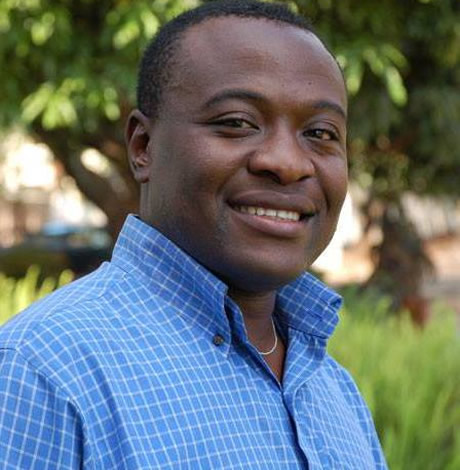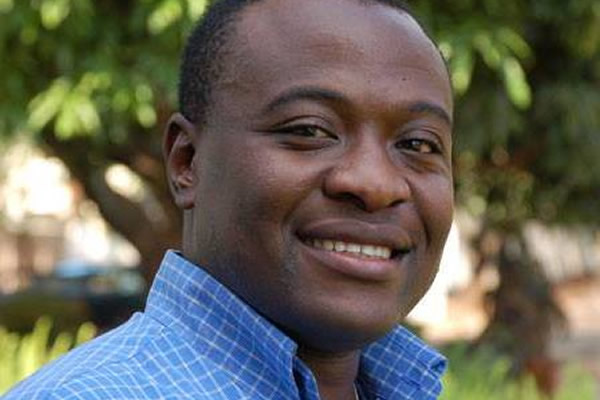News
Attack at Zimbabwe LGBT party leaves dozens injured
Incident took place on Dec. 19

Gays and Lesbians of Zimbabwe in a press release said three vehicles at around 11:20 p.m. “forced their way” into a club near its office where the event was taking place and demanded that security personnel allow them to attend.
The group notes a man in one of the vehicles threatened the guards with a pistol after they refused to allow him inside the venue. Gays and Lesbians of Zimbabwe said between 12 and 15 men proceeded to enter the club and began punching those inside.
The group said the assailants attacked people with logs, iron bars and empty beer bottles. Gays and Lesbians of Zimbabwe in their press release further noted the men also demanded money and electronics from its members as they attacked them.
Gays and Lesbians of Zimbabwe said more than 35 people were injured. The men also attacked five of the organization’s staffers and a female cashier who was working the bar during the party.
“Members sought refuge in a nearby bush, with some seeking refuge in private homes by way of jumping over fences and walls,” said Gays and Lesbians of Zimbabwe in a second press release on Dec. 21.
Zimbabwe president: Gays have no rights
Activists, the Obama administration and others in recent years have sharply criticized Zimbabwe and Robert Mugabe, the country’s long-time president, over its LGBT rights record.
Mugabe in May described homosexuality as “inhuman” and said gays “have no human rights.” He told supporters during a July 2013 rally ahead of his re-election that authorities should arrest gays and lesbians who don’t conceive children.
Authorities have also frequently targeted members of Gays and Lesbians of Zimbabwe.
Police in August 2012 arrested more than 40 members of the organization inside their office in Harare, the Zimbabwean capital. Gays and Lesbians of Zimbabwe claimed that authorities a few days earlier confiscated computers and pamphlets.
Gays and Lesbians of Zimbabwe said five men with hammers “violently” entered their offices in June 2013 and disrupted a meeting that was taking place. Authorities arrested the alleged perpetrators, but prosecutors have yet to charge them in connection with the incident.
“Whilst the existence of LGBTI people in Zimbabwe cannot be disputed anymore, thanks largely to the powerful help of President Mugabe’s rhetoric, this has created a climate and culture of impunity and lawlessness as evidenced by the actions of these thuggish men to hunt down LGBTI people in our communities, vicinities and homes to inflict harm,” said Gays and Lesbians of Zimbabwe in their Dec. 21 press release.
The organization said it has “reason to believe” club patrons who are affiliated with Mugabe’s Zanu-PF party may have asked the men to attack its members because the venue was closed for their event. Gays and Lesbians of Zimbabwe said it heard reports that some of those who took part in the incident suggested the Movement for Democratic Change, an opposition party, hosted the party.
“We are deeply troubled by reports of brutality against LGBT community members at a private end-of-year party,” said Noel Clay, a spokesperson for the State Department. “We urge the government of Zimbabwe and police authorities to investigate the reports thoroughly and to respond appropriately.”
Chester Samba, director of Gays and Lesbians of Zimbabwe, told the Washington Blade on Tuesday that those who were attacked are still filing police reports.
“We need to give the police time to investigate,” said Samba.
Gavin Reid of the International HIV/AIDS Alliance, which works with Gays and Lesbians of Zimbabwe, urged Zimbabwean officials to investigate the attack and prosecute those who committed it.
“It’s the duty of the Zimbabwean government to protect and promote the rights of all its citizens and to ensure that all Zimbabweans are able to enjoy their full constitutional rights including the right to life, to personal security, to freedom of assembly and association and to freedom from torture,” said Reid.
Clay agreed.
“We urge the government of Zimbabwe and police authorities to investigate the reports thoroughly and to respond appropriately,” he told the Blade. “We encourage respect for rule of law and call on the government of Zimbabwe to uphold its international obligations to protect the human rights of all Zimbabweans.”
Latin America
Protests, demands for rights define Pride month in Latin America
More than 3 million people participated in São Paulo march

Activists across Latin America marked Pride month with massive demonstrations, cultural activities, and demands that their countries guarantee equality and protect LGBTQ people from violence.
From Santiago, Chile, to Mexico City, activists took to the streets to celebrate the rights that have been won and the many that are still pending.
Chile
The Pride march that the Movement for Homosexual Integration and Liberation (Movilh) and Fundación Iguales organized took place in downtown Santiago, the country’s capital, on June 22. Authorities and the two organizations say more than 120,000 people participated.
Under the slogan “Pride with memory and hope,” marchers demanded lawmakers approve a bill that would allow reparations for LGBTQ Chileans who Gen. Augusto Pinochet’s dictatorship targeted. There were also calls for the government to promote an LGBTQ-inclusive educational reform.
“This time we are marching on high alert,” said Movilh spokesperson Javiera Zúñiga. “For the first time in decades, we are losing achieved rights. We demand the state wake up. The reform of the Zamudio Law has been stalled for 13 years.”
Marches also took place in Valparaíso, Antofagasta, Temuco, and Concepción, highlighting the growing visibility of transgender groups and feminist organizations.
Mexico
Mexico City on June 29 was the epicenter of one of the region’s largest Pride marches.
More than 300,000 people participated in the march. Comité IncluyeT organized the 46th annual march under the slogan “Not one step back: rights are respected.”
Several organizations denounced the increase in hate crimes — Mexico’s National Observatory of Hate Crimes notes more than 80 LGBTQ people have been reported murdered in the last year. They also urged Mexican lawmakers to criminalize transfeminicides across the country.
Argentina
Although Buenos Aires’s official Pride march takes place in November, the Argentine LGBT+ Federation and other groups in the Argentine capital and in other cities across the country in June organized activities.
More than 5,000 people on June 24 marched from Plaza de Mayo to the Argentine Congress to reject the government’s dismantling of public policies. President Javier Milei’s decision to eliminate the country’s Women, Gender, and Diversity Ministry and cut sexual health programs were among the moves the protesters denounced.
“Today Pride is also resistance to the adjustment,” pointed out Comunidad Homosexual Argentina, an LGBTQ advocacy group.

Colombia
Thousands of people in Bogotá, the Colombian capital, and the cities of Medellín, Cali, and Barranquilla marched on June 29.
The marchers’ slogan was “diversity is also peace,” in a context where violence against LGBTQ people remains high. Caribe Afirmativo, a Colombian LGBTQ rights group, notes more than 45 people from the community has been reported killed in the country over the last 12 months, with most of them trans women.
Organizations also demanded lawmakers resume debate of a bill that would extend comprehensive protections to LGBTQ Colombians. The measure has been stalled in Congress since 2023.
Brazil
More than 3 million people participated in the 28th São Paulo LGBTQ+ Pride Parade that took place on the city’s Paulista Avenue on June 22.
The parade took place under the slogan “LGBT+ social policies: we want the whole thing, not half of it.” Organizers demanded expanded access to health care, employment, and education for the most vulnerable communities, especially Black trans people. They also denounced ultraconservative figures who seek to curtail LGBTQ rights.
Peru and Paraguay
More than 15,000 people took part in a Pride march in Lima, the Peruvian capital, on June 28. Participants demanded lawmakers approve a trans rights law, which has been stalled in the Peruvian Congress since 2016, and recognition of civil unions.
Members of SomosGay, a Paraguayan LGBTQ rights group, and other organizations participated in a Pride march that took place in Asunción, the country’s capital, on June 29.
The march took place without incident, despite threats and anti-LGBTQ hate speech on social media. Participants demanded an end to anti-LGBTQ discrimination and rhetoric from social and religious groups.
Central America
Upwards of 2,000 people participated in a Pride march in Tegucigalpa, the Honduran capital, on June 22. A Pride demonstration took place in San Salvador, the capital of neighboring El Salvador, on June 28.
Virginia
Walkinshaw wins Democratic primary in Va. 11th Congressional District
Special election winner will succeed Gerry Connolly

On Saturday, Fairfax County Supervisor James Walkinshaw won the Democratic primary for the special election that will determine who will represent Virginia’s 11th Congressional District.
The special election is being held following the death of the late Congressman Gerry Connolly, who represented the district from 2008 until 2024, when he announced his retirement, and subsequently passed away from cancer in May.
Walkinshaw is not unknown to Virginia’s 11th District — he has served on the Fairfax County Board of Supervisors since 2020 and had served as Connolly’s chief of staff from 2009 to 2019. Before he passed away, Connolly had endorsed Walkinshaw to take his place, claiming that choosing Walkinshaw to be his chief of staff was “one of the best decisions I ever made.”
The Democratic nominee has run his campaign on mitigating Trump’s “dangerous” agenda of dismantling the federal bureaucracy, which in the district is a major issue as many of the district’s residents are federal employees and contractors.
“I’m honored and humbled to have earned the Democratic nomination for the district I’ve spent my career serving,” Walkinshaw said on X. “This victory was powered by neighbors, volunteers, and supporters who believe in protecting our democracy, defending our freedoms, and delivering for working families.”
In addition to protecting federal workers, Walkinshaw has a long list of progressive priorities — some of which include creating affordable housing, reducing gun violence, expanding immigrant protections, and “advancing equality for all” by adding sexual orientation and gender identity to the Fair Housing Act.
Various democratic PACs contributed more than $2 million to Walkinshaw’s ad campaigns, much of which touted his connection to Connolly.
Walkinshaw will face Republican Stewart Whitson in the special election in September, where he is the likely favorite to win.
Maryland
LGBTQ suicide prevention hotline option is going away. Here’s where else to go in Md.
Changes will take effect July 17

By ANNA RUBENSTEIN | The national suicide prevention hotline will no longer offer specialized support to LGBTQ people, starting July 17, the Trump administration announced last week.
Dialing the hotline at 988 will still be available for crisis support. But callers will no longer be able to reach specific LGBTQ services by pressing Option 3. The change worries advocates because their data shows the LGBTQ community has a disproportionally high suicide rate.
Even after the option ends, here’s how to receive tailored support if you’re in Maryland.
The rest of this article can be found on the Baltimore Banner’s website.
-

 U.S. Supreme Court4 days ago
U.S. Supreme Court4 days agoSupreme Court upholds ACA rule that makes PrEP, other preventative care free
-

 U.S. Supreme Court4 days ago
U.S. Supreme Court4 days agoSupreme Court rules parents must have option to opt children out of LGBTQ-specific lessons
-

 District of Columbia5 days ago
District of Columbia5 days agoMan sentenced to 15 years in prison for drug deal that killed two DC gay men
-

 Federal Government5 days ago
Federal Government5 days agoWhite House finds Calif. violated Title IX by allowing trans athletes in school sports











